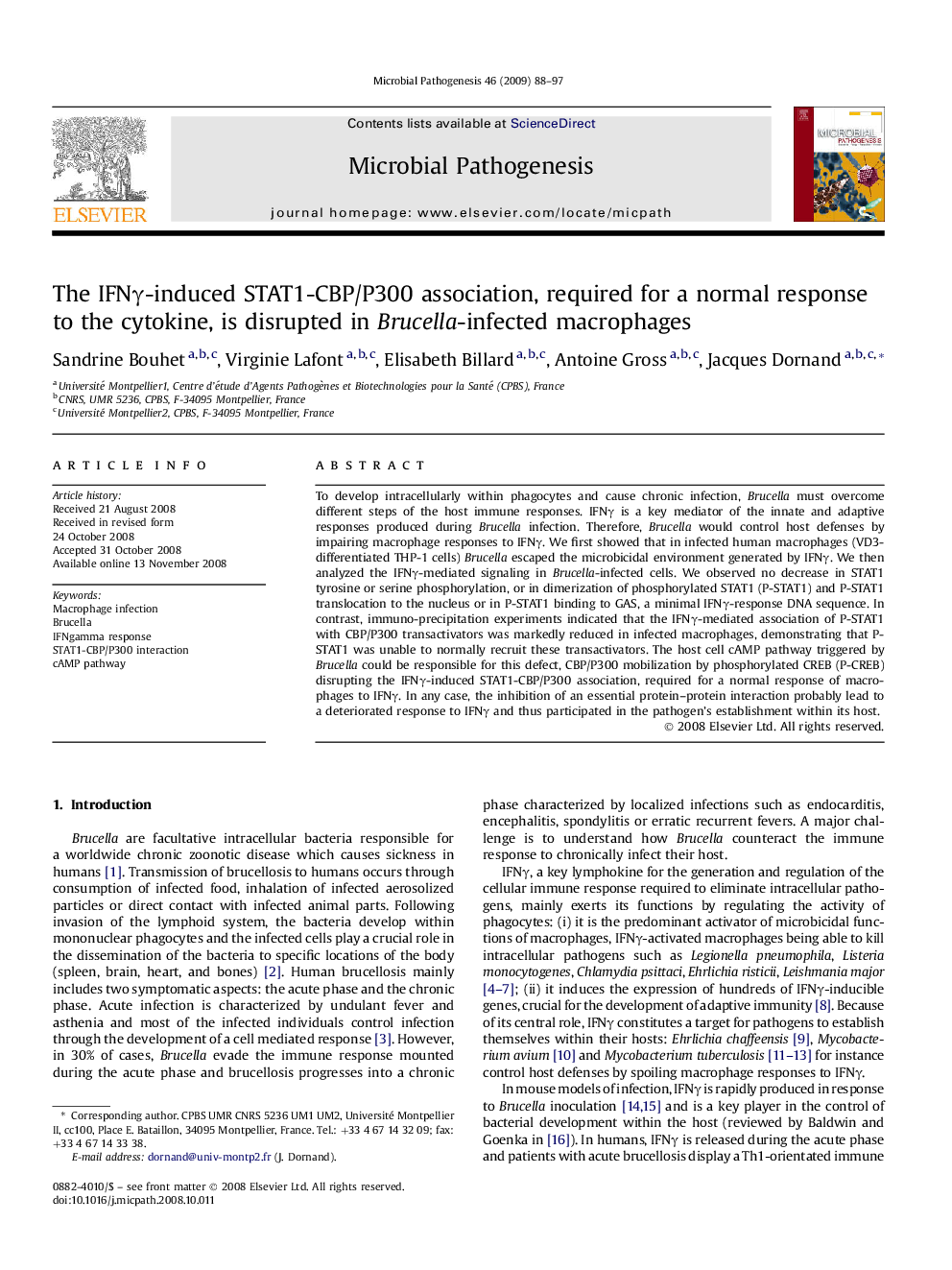| کد مقاله | کد نشریه | سال انتشار | مقاله انگلیسی | نسخه تمام متن |
|---|---|---|---|---|
| 3417086 | 1225178 | 2009 | 10 صفحه PDF | دانلود رایگان |

To develop intracellularly within phagocytes and cause chronic infection, Brucella must overcome different steps of the host immune responses. IFNγ is a key mediator of the innate and adaptive responses produced during Brucella infection. Therefore, Brucella would control host defenses by impairing macrophage responses to IFNγ. We first showed that in infected human macrophages (VD3-differentiated THP-1 cells) Brucella escaped the microbicidal environment generated by IFNγ. We then analyzed the IFNγ-mediated signaling in Brucella-infected cells. We observed no decrease in STAT1 tyrosine or serine phosphorylation, or in dimerization of phosphorylated STAT1 (P-STAT1) and P-STAT1 translocation to the nucleus or in P-STAT1 binding to GAS, a minimal IFNγ-response DNA sequence. In contrast, immuno-precipitation experiments indicated that the IFNγ-mediated association of P-STAT1 with CBP/P300 transactivators was markedly reduced in infected macrophages, demonstrating that P-STAT1 was unable to normally recruit these transactivators. The host cell cAMP pathway triggered by Brucella could be responsible for this defect, CBP/P300 mobilization by phosphorylated CREB (P-CREB) disrupting the IFNγ-induced STAT1-CBP/P300 association, required for a normal response of macrophages to IFNγ. In any case, the inhibition of an essential protein–protein interaction probably lead to a deteriorated response to IFNγ and thus participated in the pathogen's establishment within its host.
Journal: Microbial Pathogenesis - Volume 46, Issue 2, February 2009, Pages 88–97